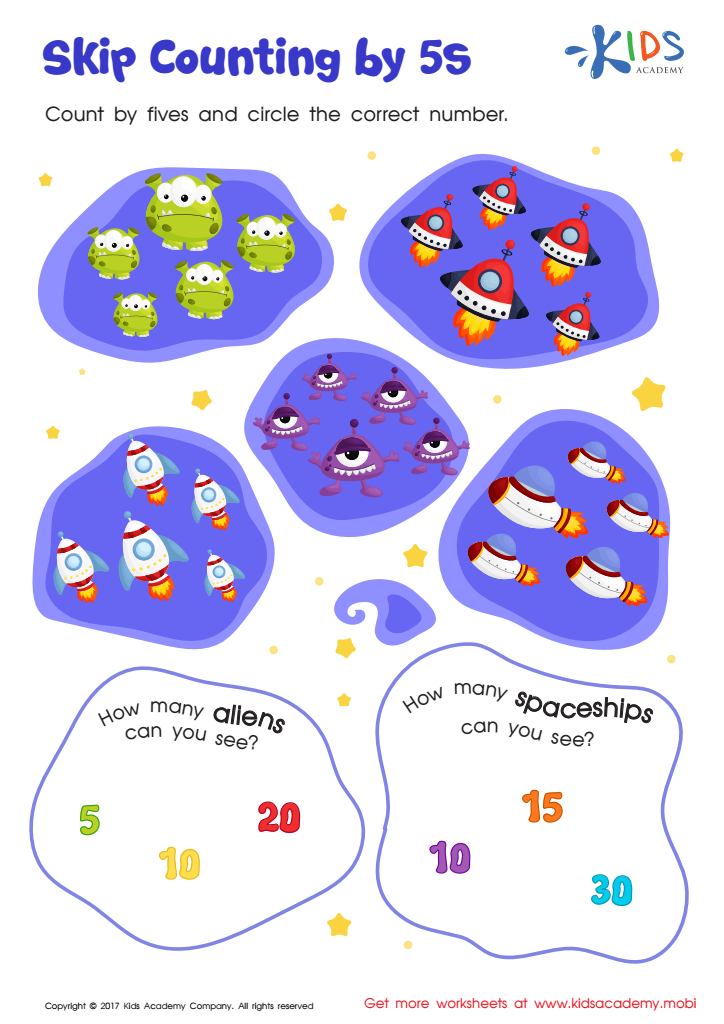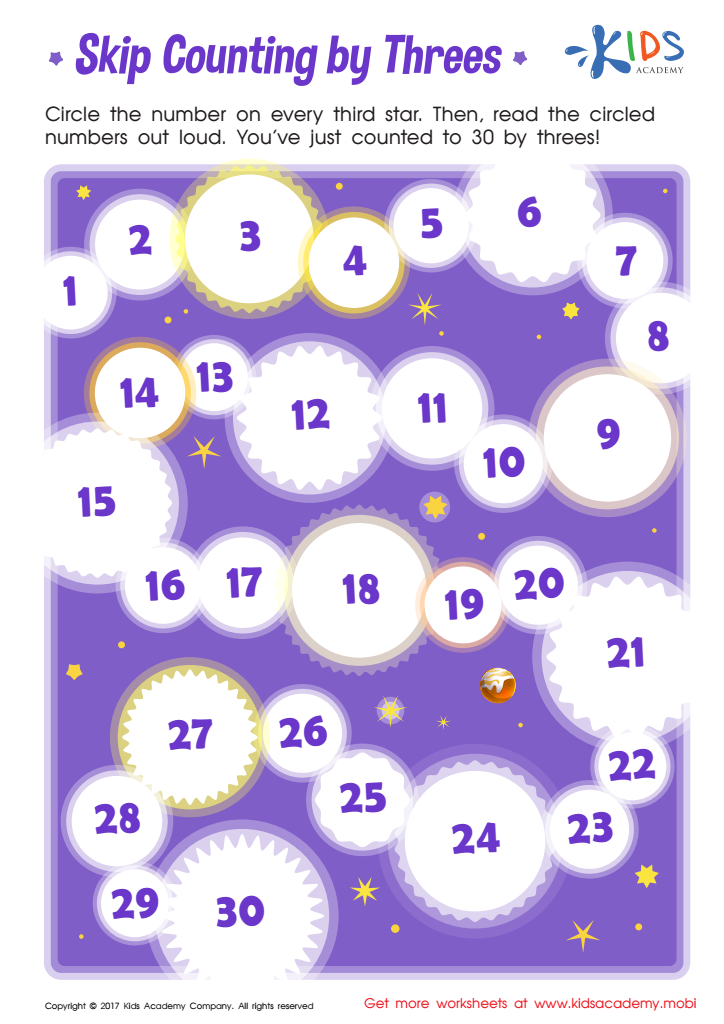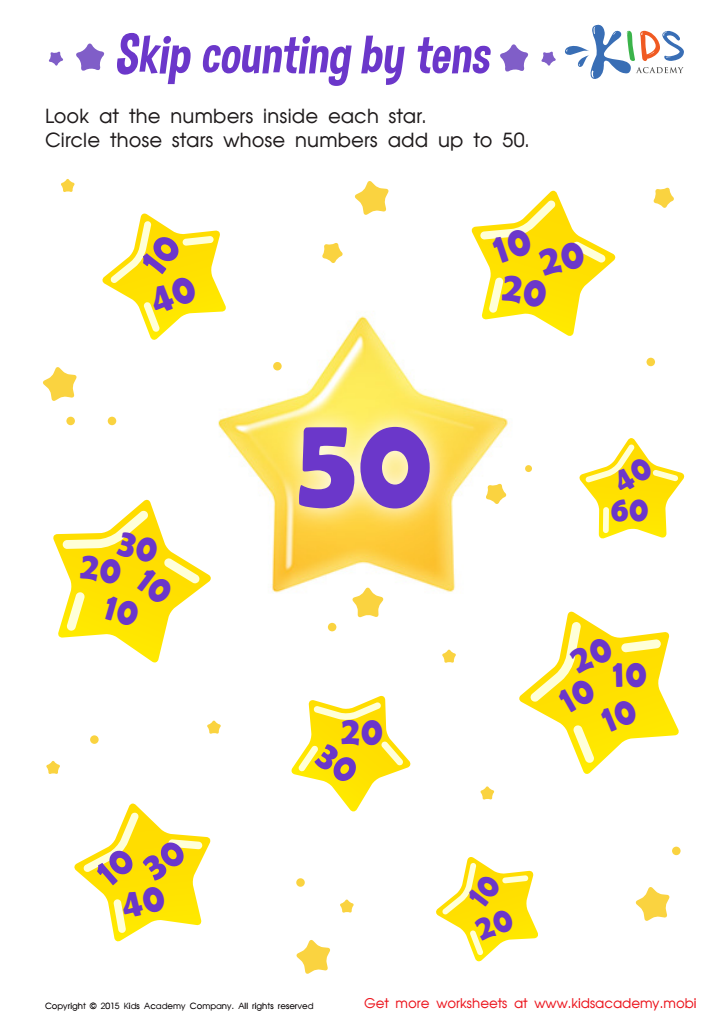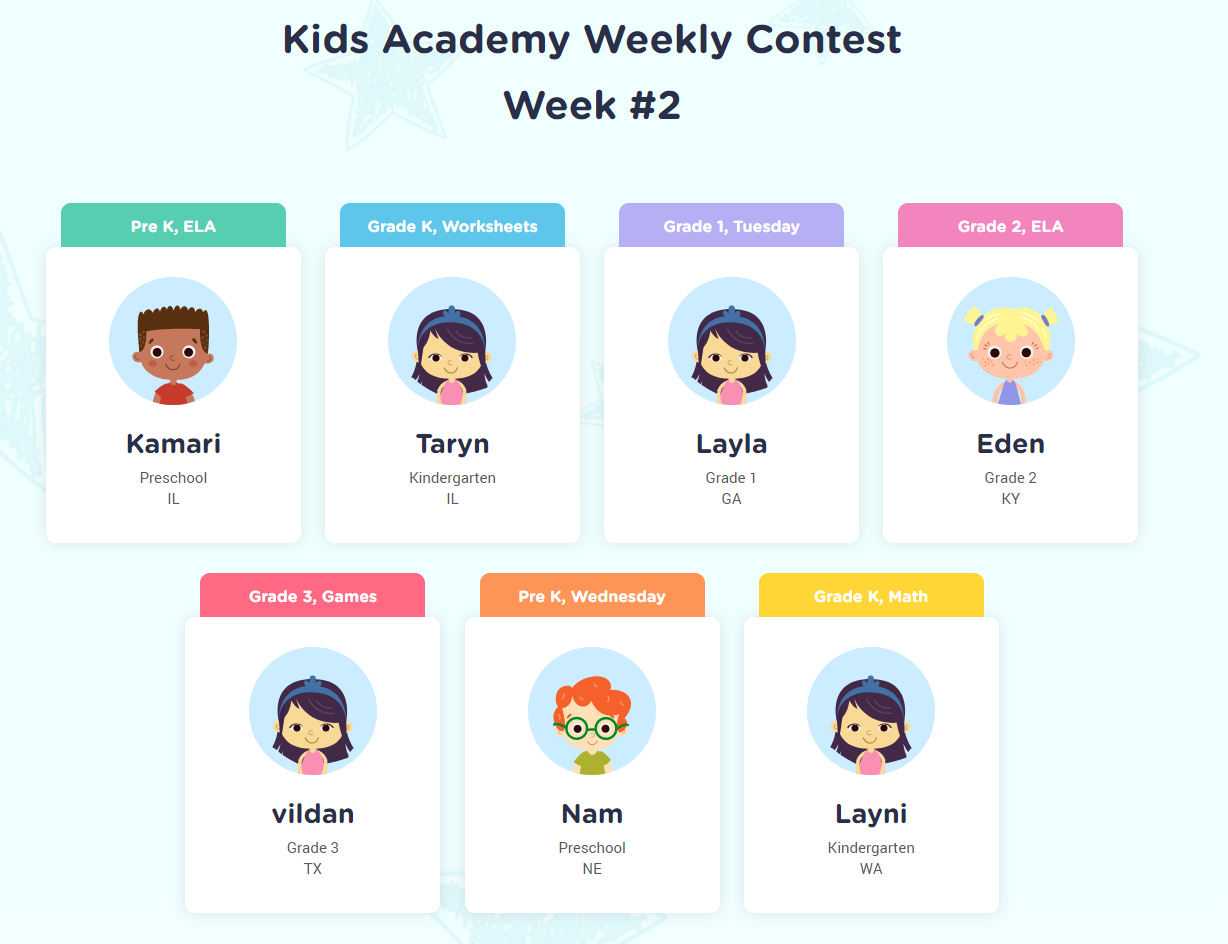Understanding skip-counting Math Worksheets for Ages 5-8
3 filtered results
-
From - To
Welcome to our "Understanding Skip-Counting Math Worksheets" page, designed for children ages 5-8. Skip-counting is a fundamental math skill that enhances number sense and prepares students for more advanced mathematics. Our engaging worksheets make learning exciting and effective, featuring colorful visuals and interactive exercises. Kids will practice counting by 2s, 5s, and 10s, which strengthens their arithmetic skills while building confidence. Each worksheet is tailored to cater to diverse learning styles, ensuring that every child can progress at their own pace. Explore our collection to help your child develop a solid foundation in skip-counting, setting the stage for future math success!


Skip Counting by 5s: Aliens and Spaceships Printable


Skip Counting By Three Printable


Learn Dozens: Skip Counting by Tens Printable
Understanding skip-counting is crucial for children aged 5-8 as it lays a foundational grasp of mathematics that enhances their overall numeracy skills. Skip-counting, which involves counting by numbers other than one (such as by twos, fives, or tens), introduces patterns and sequences that help children recognize relationships among numbers. This skill is not only useful for counting objects quickly but also serves as a stepping stone toward more advanced concepts like multiplication and division.
Parents and teachers should care about skip-counting because it fosters cognitive development, enhancing children's problem-solving abilities and critical thinking skills. Engaging children in activities that promote skip-counting can make learning fun and interactive, helping them see real-world applications, such as skip-counting in time (by fives on a clock) or money (by tens or twenties). Additionally, mastery in skip-counting builds confidence and encourages a positive attitude towards math, enabling learners to tackle more complex concepts with ease.
Investing time in ensuring that children understand skip-counting will not only support their academic journey but also empower them with essential skills that will serve them throughout their lives. Early intervention and encouragement in this area can set the stage for a lifelong appreciation of mathematics.
 Assign to My Students
Assign to My Students




















